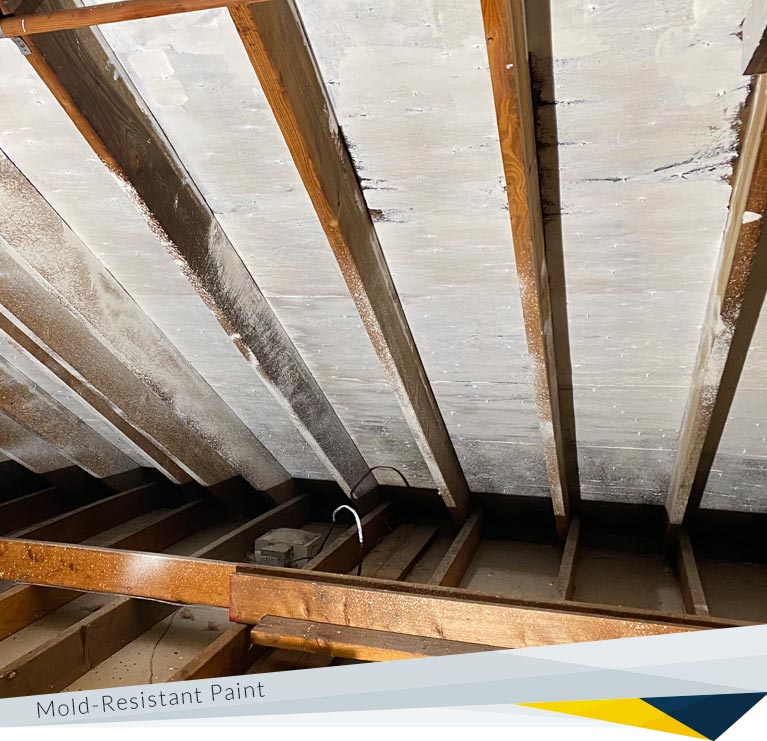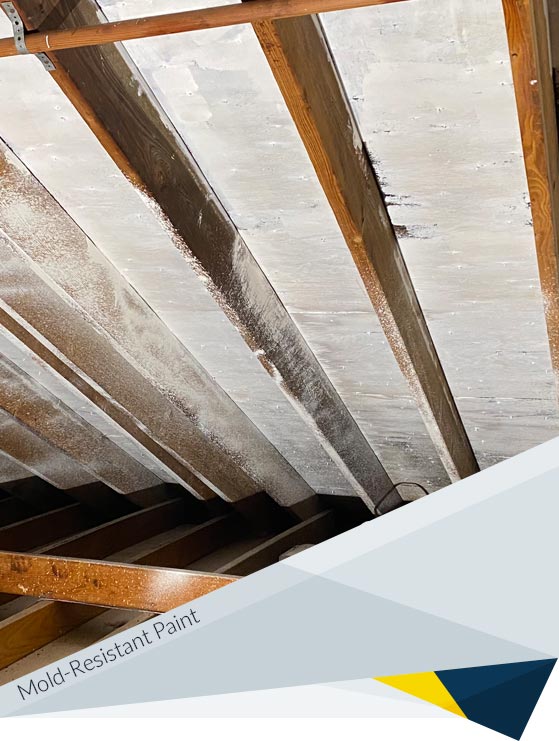
If you've ever dealt with mold in the past, you deserve a long-term solution for your property. Mold remediation is the professional answer to mold growth, and one of the stages of any mold remediation process will include figuring out how to prevent mold from turning up again, like a bad penny.
This is where mold-resistant paint comes into play.
Mold-resistant paint is formulated to prevent mold growth and can help shield your home from recurring mold damage. In the upcoming sections, we'll delve into how mold-resistant paint can be a game-changer for your mold prevention strategy.
You can read more about other ways to prevent mold in your home here in our blog: How to prevent mold in your house

There are two primary types of mold-resistant paint: primers and all-in-one paints.
Mold-resistant primers are used for the first layer of paint that prepares the surface of the wall for the later coats of paint that bring the color. Since it is going to be painted over anyway, it is usually clear or white, without any specific tinting. Depending on the brand, the formula can contain various substances designed to resist the growth of mold. These primers create a barrier that prevents mold spores from attaching to the surface. Often, they are applied before the installation of wallboard or tiling and before the application of a topcoat of paint.
Some paint companies offer all-in-one mold-resistant paints as a convenient shortcut for homeowners. These paints are tinted, so you can choose a color you like, and they are typically much more expensive than typical indoor paints. They may even be marketed explicitly for use in bathrooms but are appropriate for any areas where you would have a high moisture content.
When deciding if you should use mold-resistant paint, think about the specific areas of a property that regularly come into contact with moisture:
Besides using exhaust fans to let moist air escape, which you definitely should do regularly, consider repainting these areas of your home with mold-resistant paint. It's also an excellent choice in general for older homes that are prone to mold or properties located in damp climates.
Sometimes people are tempted to substitute waterproof paint when mold-resistant paint would be a better choice. They aren't the same, though they may both help prevent mold growth in different ways. Waterproof paint can seal a wall, and without water seeping through, mold can't grow. Despite this, it still isn't ideal for mold prevention because:
This special paint is designed for prevention, not for mold treatment. If there is already mold present, you need to have mold abatement done before you paint the walls. Mold burrows inside porous surfaces (like walls!), and painting over it won't kill it. You need professional mold remediation specialists to remove the sections of the sheetrock or other wall materials, as you can't clean them, and to do so safely. If you paint over mold, you are delaying the problem to a future date and likely making it worse also.
It would also be overkill, as well as expensive, to repaint every inch of your home for no other reason than to reduce the likelihood of mold on your walls. If you are painting anyway, you can decide you want to use the paint everywhere if that appeals to you. But it is rarely necessary to go to this extent in areas of your home where water intrusion would be unexpected.
When you discover mold in your home, there is a lot of pressure on you to act immediately to stop mold damage in its tracks. You needn't worry about what needs to be done to take care of your property. Our mold mitigation specialists can carry this responsibility on our shoulders.
Once we have the process underway, we'll be happy to share targeted recommendations for future mold prevention with you. Let's forge a mold prevention strategy together. From mold-resistant paint and mold-resistant building materials to highly effective dehumidifying equipment, there are many advanced options to defend your home against mold.



